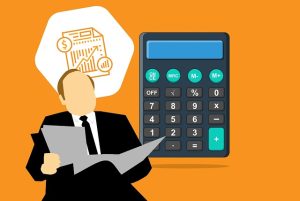How to Accept Trading Losses and Their Importance in One’s Self-Development as a Trader
July 28, 2014
When I post articles discussing a day’s trading results, I have no issue going through and explaining losing trades. One reader actually expressed gratitude that I also discuss the trades that I lose. At first I thought it was a bit strange, given losing trades is simply part of the game and it’s nothing to be ashamed of obviously.
It really does underscore the point that many can treat trading losses as something that they should not be proud of and something that represents a failing in the trading experience. It’s understandable, as losing trades can cause both financial and psychological pain – decrease or wipe out trading accounts while diminishing personal self-confidence and potentially engendering irrational trading decisions. But I do believe it is very important to recognize, think about, and actively study losing trades to determine how and what you can learn from them. Occasionally in my posts, I will ruminate about how a trade that I lost could have possibly been avoided – for example, being more cognizant of increasing momentum and volatility in the market.
I believe that trading is about doing the same thing over and over again – with regards to an effective strategy and money management plan while keeping an even mindset. But you can always improve while keeping this multifaceted routine stability constant in the process.
1. Understand the importance of accepting your losses. It sounds like a very banal and unhelpful thing to say, but everybody will lose trades. In fact, in some forms of trading, you might actually lose the majority of your trades yet still earn a net profit. It depends on the reward-to-risk ratio. This can also apply to some forms of binary options traded on an exchange, where this ratio is not always in the broker’s favor, as it almost always is with the offshore sites.
Trading, fundamentally, is a game of probabilities. Whenever probabilities are involved, there will be essentially zero chance for absolute perfection especially when it comes to predicting the future direction of a financial market. It is actually genuinely quite rare to even have a market scenario in front of you where you have even a 60% chance of winning a trade. This is why I trade relatively infrequently – sometimes several hours between trades and sometimes not at all. I’m looking for moments in the market that I can identify as apt opportunities to take a trade such that the chances of winning are better than the broker’s break-even odds for that asset. For example, if the payout structure on an asset is 85% (and no return for a losing trade), you should have a greater than break-even chance of winning the trade to expect long-term profitability (54.05% in this case), assuming fixed-investment money management.
But probabilities are the focus in trading, as they are in many other heavily probability-based endeavors. It occurs in blackjack with the entire card-counting concept. When you’re in a favorable count, you bet more money per hand expecting that your probability of winning is higher than when you’re in a more negative count. Theoretically, over time, and assuming you count effectively in a robust card-counting system and know basic blackjack strategy, you will reap a profit. In Major League Baseball (MLB), teams play 162 regular season games per year. No team will ever win every single game. In fact, the best clubs only win about 55% of their games. A 60% win rate is exceptional and likely a marker of the fact that you’re one of the top two or three teams in the league. In binary options, your win rate is very important. It doesn’t need to be perfect or even necessarily high, but high enough such that you’re turning a profit.
Failure to properly accept losses on a psychological level will lead to poor trading behaviors. For example, in binary options this could mean using overly aggressive money management to gain back previous losses, trading set-ups that aren’t truly there because you’re frustrated and bitter that things haven’t been going your way, or even failing to pull the trigger altogether because you might be worried that it could lead to yet another trade.
2. You need to develop the right mindset toward viewing trading losses. As I’ve asserted previously, the biggest roadblock people have in trading successfully is themselves. Mastering the mental aspect of trading and all the possible emotions involved is critical otherwise you simply cannot possibly do well long-term. You almost need to be robotic in your actions and temperament to a large extent.
3. Never view a losing trade as a so-called “bad trade” if it genuinely isn’t. If you followed your strategy, entered where you wanted to, stood by your risk limitations, and traded free from bias and emotional input, then you can consider a trade successfully taken but one that simply did not go your way. Even if the most set-up in the world shows up one day, understand that it simply isn’t going to work 100% of the time and it’s not something to get discouraged or emotional over. It’s just the way it goes and should therefore not necessarily be considered a mistake, error, or “bad trade.”
4. Whenever you trade the markets you are making a prediction about where the market will be or how it will act in one way or another. If you fall short on this prediction and end up with a losing trade, it is important to review it after the trading day or ideally some point in the very near future to see if there is anything to be learned from it. They can teach you, for example, how the market acts at a certain time, when these types of set-ups might be okay and when they might not be, how a certain asset behaves, and any mental errors or mistakes you may have committed. It is through losses and failures of sorts in which I have developed into the type of trader that I am now and there is always room for self-improvement.
I understand that it can be painful to look at losing trades, as they don’t represent a good thing on the most superficial level. But reviewing the market scenario in which they were taken, and deriving any type of insight into what occurred can translate into a legitimate learning experience and offer continued growth and positive development as a trader.



